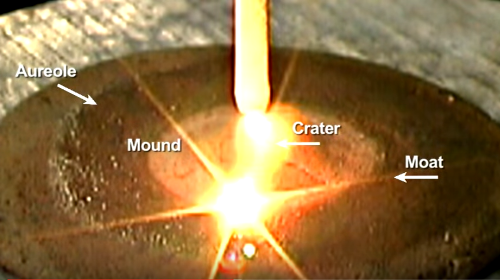Category: Common Misconceptions
Common Misconception 12 — Why Electricity Over Magnetism?

Misconception: Why electricity over magnetism? The Magnetic Universe does not require an Electric Universe. Answer: In the real world, electricity and magnetism occur together as a unitary electromagnetic phenomenon. Scientists and engineers often focus their attention on one aspect or the other in order to solve a particular problem. That…
Common Misconception 11 — Isn’t the Matter Settled?

Misconception: The existence of Dark Matter has been settled. Answer: If the Standard Model of cosmology is true, then Dark Matter must be causing discrepancies in motions; therefore, observed discrepancies in motions prove the existence of Dark Matter. The theory bites its tail and turns in a circle. The universe…
Common Misconception 10 — Why Dispute the Big Bang?

Misconception: The Big Bang was proved by the Cosmic Microwave Background Radiation. Answer: It seemed that Big Bang Theory had been proven beyond doubt by what had been observed in the universe. Diligent work by independent scientists has shown multiple catastrophic flaws inherent in a Big Bang-aligned interpretation of Cosmic…
Common Misconception 9 — Who Disproved Einstein?

Misconception: Einstein’s relativity theory has been proven. Answer: Einstein’s Relativity theory is actually two related theories—the Special Relativity (SR) theory of 1905 and the General Relativity (GR) theory of 1915. Broadly speaking, both examine the motion of physical bodies in relation to the role of frames of reference. More specifically,…
Common Misconception 8 — Where’s the Educational Deficiency?

Misconception: Astronomers are well-trained in electric phenomena and have always known about the electric currents in space. Answer: As a general rule, astronomers do not receive well-balanced education from universities. If physics curricula and set priorities were designed from the experience of the world, instead of mathematical formalism, they would…
Common Misconception 7 — Where’s the Conductor?

Misconception: Electric currents are impossible across the vacuum of deep space. Answer: A vacuum is an empty physical space, a complete absence of matter. It is a volume containing no mass and thus has zero density and pressure. Because of the relatively high speeds of ubiquitous interstellar particles, one would…
Common Misconception 6 — How Big Is the Universe?

Misconception: Astronomers can reliably calculate cosmological distances. Answer: Quantifying depth or radial distance from our point of observation is arguably the most daunting and pressing problem facing astrophysics. Location relative to Earth is a primary property of celestial objects, but almost the entire 3-D map of the observable universe is…
Common Misconception 5 — What About Gravity?

Misconception: The EU concept seeks to replace gravity with electromagnetism. The Electric Universe paradigm fully accepts the existence and importance of gravitation to the practice of physical science and cosmological modelling. But it adds the crucial caveat that gravitation does not tell the whole story. What if the Sun is…
Common Misconception 4 — Where’s the Peer Reviewed Research?

Misconception: The absence of peer reviewed papers by Electric Universe authors means the ideas cannot be taken seriously. Answer: Peer review is a practice that provides both benefits and drawbacks. The path of specialized knowledge radiates out as the spokes of a wheel, leaving pioneers ever more remote and isolated…













